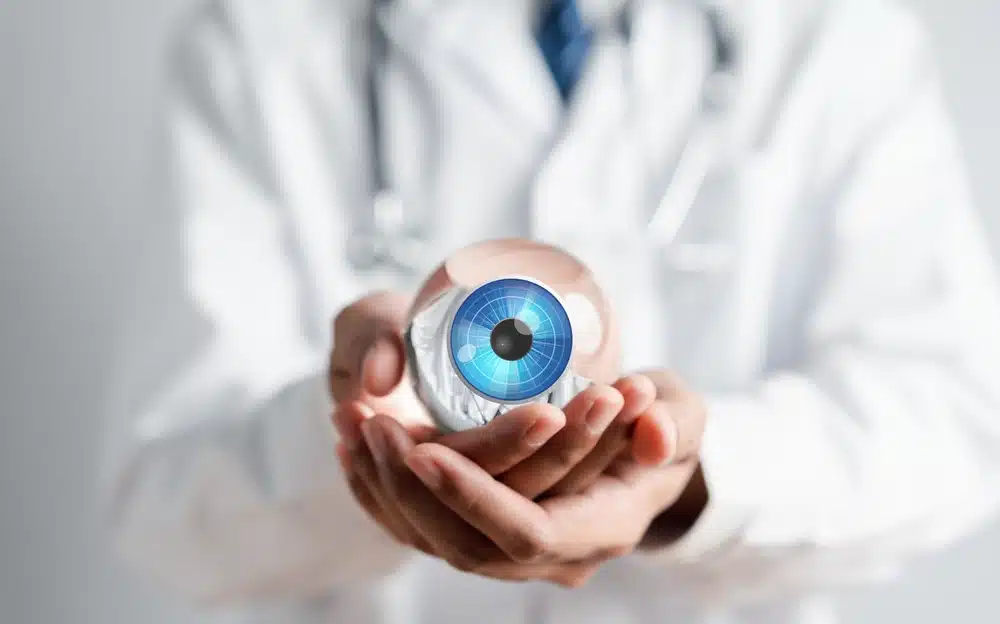Is Refractive Surgery Right for You? Elements to Consider for Better Eyecare
In the realm of eye care, the decision to undergo refractive surgery is a significant one that demands thoughtful consideration. From the complexities of one's ocular health to the complexities of personal assumptions and daily routines, each element holds relevance in the more comprehensive landscape of refractive surgical procedure candidateship.
Eye Health And Wellness Assessment
When thinking about refractive surgical treatment, an extensive eye health analysis is critical to analyze the viability of the procedure for each person. eye center andalusia. This examination involves a collection of examinations and evaluations carried out by an eye care expert to determine the total health and wellness of the eyes, the presence of any kind of underlying problems, and the stability of the refractive error
Throughout the evaluation, numerous elements are thought about, such as the individual's medical background, current eye prescription, corneal density, pupil dimension, and tear film top quality. These evaluations aid to determine any contraindications to refractive surgical treatment, such as corneal abnormalities, cataracts, or unattended eye infections. Furthermore, the evaluation assists to take care of individual expectations relating to the potential results of the surgery based on their one-of-a-kind eye qualities.
Eventually, the eye health assessment is crucial in ensuring the security and performance of refractive surgery, as it offers valuable understandings into the individual's eye health condition and assists figure out one of the most ideal therapy options for achieving optimal visual results. (neurologist andalusia)
Lifestyle Assessment
A detailed way of life analysis is important in determining the viability of refractive surgical treatment for a person's visual improvement requirements. Lifestyle aspects such as occupation, leisure activities, and daily tasks play an important duty in the decision-making process pertaining to refractive surgical treatment.
Additionally, lifestyle routines such as sports involvement, outside tasks, or even skin care routines can influence the healing procedure and general success of refractive surgery. By performing a thorough way of life evaluation, eye treatment specialists can customize their referrals and therapy plans to meet the special needs of each individual, inevitably leading to enhanced visual outcomes and contentment.
Assumption Alignment

Establishing realistic assumptions includes extensive pre-operative discussions in between the patient and the eye doctor. The specialist needs to transparently interact the possible dangers, benefits, and limitations of the procedure (eye center andalusia). Clients need to comprehend that while numerous individuals achieve 20/20 vision or much better complying with refractive surgical treatment, some might still call for glasses for particular tasks like analysis or driving at night. Taking care of these expectations helps prevent frustration and dissatisfaction post-surgery, causing a more positive overall experience for the individual.
Risk Evaluation

Variables that may raise the risk of difficulties include age, specific medical conditions like autoimmune conditions, unstable vision prescription, thin corneas, and impractical client assumptions. In addition, selecting a knowledgeable and skilled doctor, adhering to pre and original site post-operative care guidelines diligently, and divulging any pertinent case history can assist minimize risks.
To reduce the chance of complications, ophthalmologists carry out detailed pre-operative assessments to determine any kind of contraindications to surgical procedure. They also talk about the prospective dangers and advantages with individuals throughout the appointment procedure. By taking part in open communication and shared decision-making, both the ophthalmologist and the client can collaborate to identify if refractive surgical treatment is the ideal option based on private danger profiles and desired outcomes.
Consultation Significance
Considering the crucial role of informed decision-making in assessing risks and possible difficulties in refractive surgical procedure, the examination process holds considerable importance in guiding patients in the direction of ideal results. During the appointment, the eye doctor examines the client's eye health, refractive mistakes, and general suitability for surgery. This first evaluation is essential in determining one of the most appropriate procedure for each and every person, thinking about factors such as corneal density, pupil dimension, and existing eye conditions.
Moreover, the appointment works as an opportunity for people to discuss their assumptions, issues, and any inquiries they may have regarding the surgical treatment. Clear communication in between the doctor and the client is necessary to ensure sensible expectations and a comprehensive understanding of the prospective dangers and benefits entailed.
Furthermore, the consultation enables the doctor to explain the various medical options offered, their respective results, and the post-operative treatment required. This extensive conversation empowers clients to make educated choices about their eye care, bring about better fulfillment and end results post-surgery.
Conclusion
In final thought, people considering refractive surgery must undertake a comprehensive eye health assessment, examine their way of living habits, align their expectations with prospective results, examine the affiliated threats, and focus on examinations with eye care specialists. These factors play a vital role in determining the viability of refractive surgical treatment for every individual, making sure ideal results and fulfillment with the treatment.
Individuals taking into consideration refractive surgical treatment commonly click here for more info have high assumptions relating to the results, expecting perfect vision without the need for glasses or call lenses. While refractive surgical procedure can substantially enhance vision and decrease dependency on aesthetic help, it is vital for individuals to comprehend that results might differ based on private factors such as the level of refractive mistake, corneal thickness, and total eye wellness.
By engaging in open communication and shared decision-making, both the patient and the eye doctor can function together to determine if refractive surgical procedure is the ideal choice based on specific danger profiles and preferred outcomes.
Taking into more information consideration the important role of notified decision-making in assessing threats and potential difficulties in refractive surgical treatment, the consultation procedure holds significant relevance in directing people towards optimum results. Throughout the assessment, the eye doctor assesses the individual's eye health and wellness, refractive errors, and general viability for surgery.